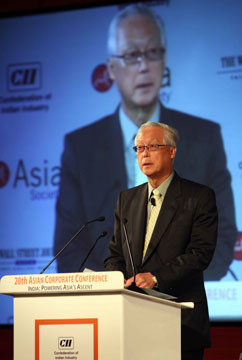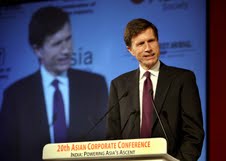The afternoon session on Day 2 of the Asia Society’s ACC began with a keynote address from Jairam Ramesh, India’s Minister of State, Environment and Forests. India faces environmental issues on two conceptual levels: issues which must be resolved in the international arena, such as climate change, and more traditional environmental issues that must be addressed locally, such as air pollution, water pollution, land degradation and others. Mr. Ramesh discussed some of India’s strategies for tackling these challenges.
Mr. Ramesh underscored that environmental issues must be brought to center stage. “We’ve had a goody-goody approach to the environment so far,” he said candidly. “But managing the environment means making tough calls and tough choices. It’s very difficult in our system to make such tough calls.” The sustainability of India’s high economic growth, he stressed, is predicated on obeying the fundamental laws of ecological sustainability. India cannot afford to grow first and clean up later. Moreover, for India to have “inclusive” growth, it must also have sustainable growth.
Read the rest of this entry »































